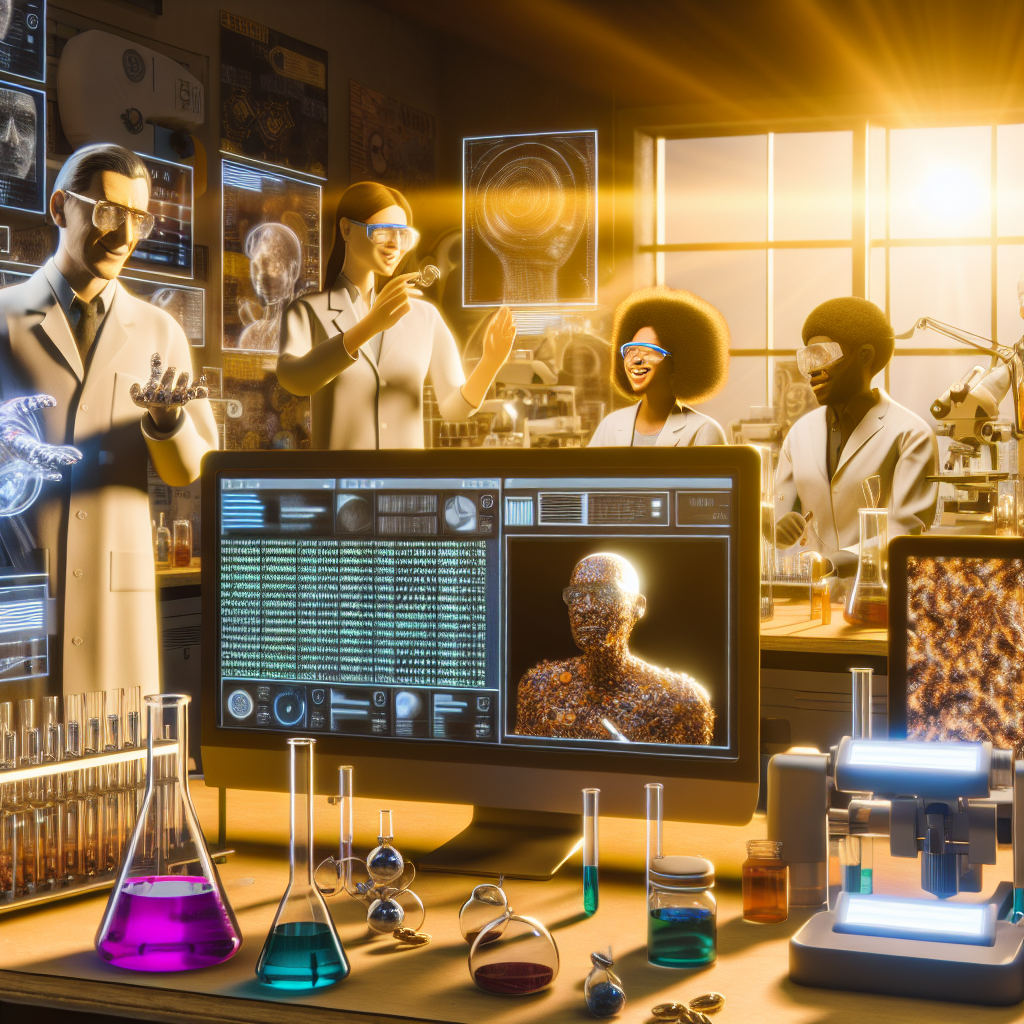
Drug Development Insights from AI: Shaping the Future of Medicine
The role of Artificial Intelligence (AI) in revolutionizing healthcare continues to expand, and its influence is particularly transformative in the field of drug development. With companies like **PPD (Thermo Fisher Scientific)** leading the charge, new insights gained from advanced AI technologies are enabling faster, more efficient, and cost-effective drug discovery and testing processes. Let’s delve into how AI is reshaping this critical landscape, the innovations driving it, and the impact it has on global healthcare.
How AI is Transforming Drug Development
Drug development has traditionally been a lengthy, resource-intensive process that spans years—often exceeding $1 billion in costs per approved drug. However, **Artificial Intelligence** is setting the stage for a paradigm shift, helping to streamline every phase of the pipeline, from initial discovery to post-market monitoring. Here’s how:
- Accelerating Drug Discovery: AI algorithms rapidly analyze massive datasets, identifying the most promising compounds and drug targets.
- Enhancing Precision: Machine learning models can predict how different molecules will interact, reducing unnecessary experiments and optimizing outcomes.
- Improving Clinical Trials: AI improves patient selection, optimizing trial designs and increasing success rates.
- Cost Reductions: Shortened timelines save billions, allowing pharmaceutical companies to reinvest in further research.
Companies like **PPD (Thermo Fisher)** now rely on these AI-powered capabilities to tackle the challenges of modern healthcare, making life-saving drug therapies available faster and cheaper.
Why AI and Thermo Fisher’s PPD Matter in Healthcare Today
As part of Thermo Fisher Scientific, PPD has embraced AI innovations to create a new frontier in drug development. The integration of AI into *PPD’s clinical trial services* allows for more **precise planning** and **deepened insights** that empower pharmaceutical clients to succeed.
Key AI Applications Within PPD:
- Predictive Analytics: AI helps predict patient responses and trial outcomes, leading to improved success rates.
- Data Mining: Leveraging large-scale patient records and genomic databases to discover relationships between diseases and potential treatments.
- Real-Time Monitoring: AI tools analyze ongoing trial data in real time, enabling immediate adaptation to reduce risks.
For readers curious about similar technological advancements, check out our AI in Pharmaceuticals article here on Aidigestfuture.com.
Thermo Fisher’s AI-Driven Global Impact
Thermo Fisher’s embedding of **AI in PPD clinical services** is creating ripple effects throughout the global healthcare network. By **collaborating with biotech firms, academic labs, and large pharmaceuticals**, Thermo Fisher is pushing boundaries, democratizing drug access, and fostering innovation.
AI at Scale: Benefits for Patients and Companies
AI and advanced analytics provide double-sided benefits that work equally for drug developers and end-users. Here’s how:
- Shortened Lifecycles: Edging therapies closer to commercialization at unprecedented speeds.
- Improved Accessibility: AI-driven systems allow underserved populations to benefit through affordable therapeutic services.
- Safety and Efficacy Standards: Leveraging automated systems to rigorously test new drugs while reducing risks.
The company’s commitment to **precision medicine**, enabled through data-driven approaches, highlights its vision for empowering flexible healthcare systems that respond dynamically to patient-specific needs.
Challenges in AI Adoption in Drug Development
While the applications of AI in drug discovery hold immense promise, it’s not without challenges. Large-scale implementation often requires addressing the following concerns:
- Data Privacy: Patient-related health data used to train AI models must navigate stringent privacy laws like GDPR.
- Regulatory Compliance: Government policies vary globally, creating hurdles in regulatory adherence.
- Algorithmic Bias: Ensuring AI models are trained on balanced, diverse datasets to avoid biased outcomes.
A continuous collaboration between industry players, regulators, and organizations like Thermo Fisher ensures that solutions are found to navigate these obstacles effectively.
The Future Outlook
Looking ahead, AI will undoubtedly occupy a central role in healthcare, especially in drug development. As machine learning tools take center stage, expect breakthroughs involving:
- Personalized medicines targeting rare diseases and individual profiles.
- Innovative combinations of new and existing therapies for more comprehensive treatment.
- Automated safety monitoring with predictive capabilities that warn against adverse effects before market approval.
For a deeper understanding of how AI is disrupting legacy models across life sciences, don’t miss other AI-focused insights on Aidigestfuture.com.
Conclusion: Bridging Science and Innovation
The transformative synergy of AI and drug development showcased by **PPD and Thermo Fisher Scientific** stands as a beacon of progress. By bringing **unprecedented speeds, costs, and precision** to the drug discovery process, modern AI-driven approaches are bridging gaps between innovation, affordability, and accessible healthcare for all. Staying attuned to this space will undoubtedly provide invaluable perspectives on what’s next for medicine, technology, and humanity.
Suggested Reading
For further reading about drug development and the role of artificial intelligence, here are some useful resources:
- NCBI: AI in Drug Discovery
- Nature: AI-Driven Drug Discovery
- PLOS Medicine: Transforming Pharmaceutical Research
- Forbes: Accelerating Drug R&D
- JAMA Network: AI’s Role in Healthcare
- Frontiers in Pharmacology: AI in Clinical Trials
- Harvard Business Review: AI in Pharmaceuticals
- Harvard’s Computational Science Hub
- McKinsey: Harnessing Artificial Intelligence
- ArXiv: AI for Molecular Drug Discovery
